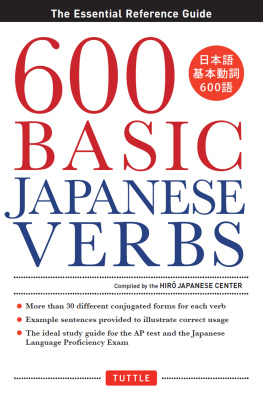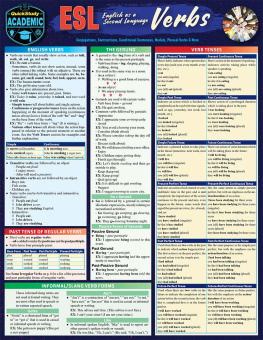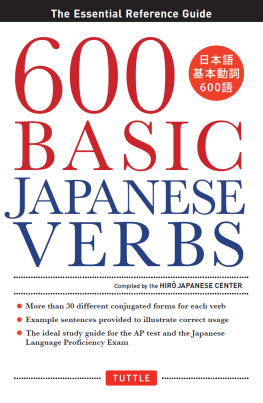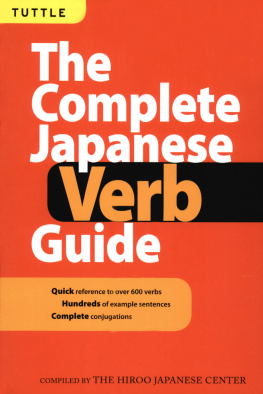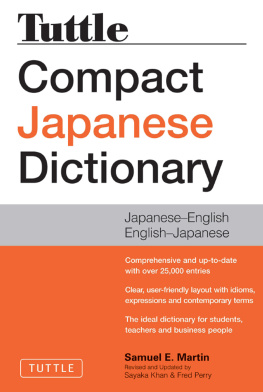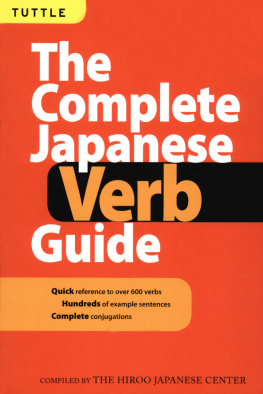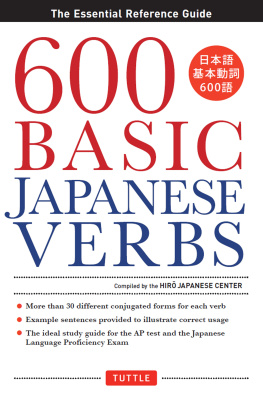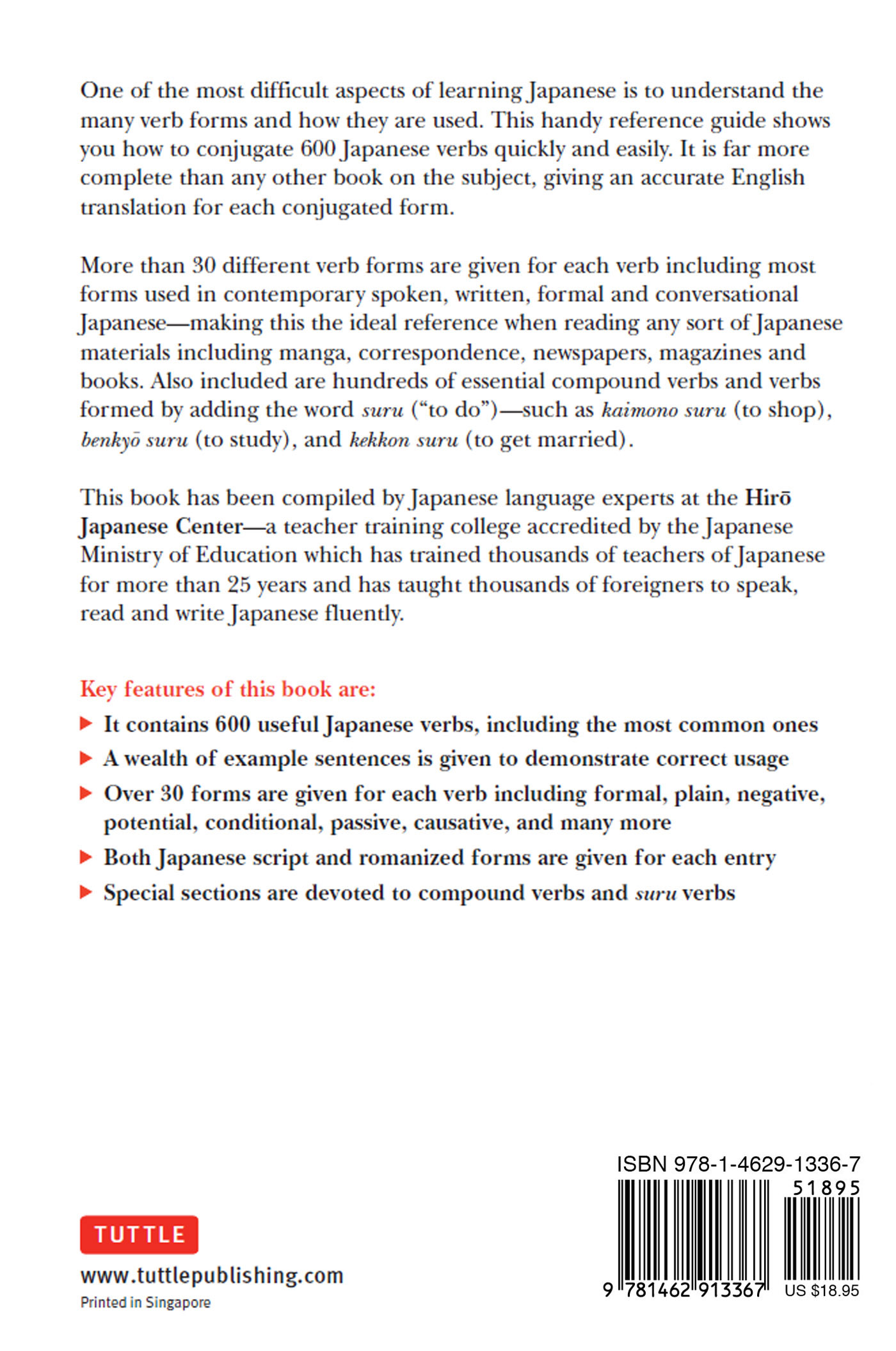Hiro Japanese Center - 600 Basic Japanese Verbs. The Essential Reference Guide
Here you can read online Hiro Japanese Center - 600 Basic Japanese Verbs. The Essential Reference Guide full text of the book (entire story) in english for free. Download pdf and epub, get meaning, cover and reviews about this ebook. year: 2014, publisher: Perseus Books Group;Tuttle Publishing, genre: Detective and thriller. Description of the work, (preface) as well as reviews are available. Best literature library LitArk.com created for fans of good reading and offers a wide selection of genres:
Romance novel
Science fiction
Adventure
Detective
Science
History
Home and family
Prose
Art
Politics
Computer
Non-fiction
Religion
Business
Children
Humor
Choose a favorite category and find really read worthwhile books. Enjoy immersion in the world of imagination, feel the emotions of the characters or learn something new for yourself, make an fascinating discovery.
- Book:600 Basic Japanese Verbs. The Essential Reference Guide
- Author:
- Publisher:Perseus Books Group;Tuttle Publishing
- Genre:
- Year:2014
- Rating:3 / 5
- Favourites:Add to favourites
- Your mark:
600 Basic Japanese Verbs. The Essential Reference Guide: summary, description and annotation
We offer to read an annotation, description, summary or preface (depends on what the author of the book "600 Basic Japanese Verbs. The Essential Reference Guide" wrote himself). If you haven't found the necessary information about the book — write in the comments, we will try to find it.
600 Basic Japanese Verbs is a handy, easy-to-use guide to one of the building blocks of Japanese grammarverbs.
This book will be an essential resource as it shows learners how to conjugate the 600 most common Japanese verbs quickly, and with very little effort. This is the only guide to list all verb forms in both Japanese script and romanized form, while giving an accurate English translation for each conjugated form, making this book far more comprehensive than any other book on the subject.
Key features of this book are:
Hiro Japanese Center: author's other books
Who wrote 600 Basic Japanese Verbs. The Essential Reference Guide? Find out the surname, the name of the author of the book and a list of all author's works by series.

